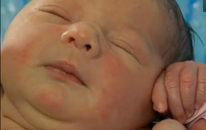The #1 Thing Boys Need

by Marie Roker-Jones
I often get asked what do I think that boys need the most. I usually hesitate to answer that question because although collectively boys need support in areas such as education and employment, I believe that individual boys have their own needs.
However, if there is one thing I believe that all boys need, it is: Understanding. I’m not going to get into a debate about why boys are falling behind girls but I will shed light on why boys need to be understood.
If you do a Google search on boys, you’ll find a lot of random stuff, most of it is negative. It seems that somehow as we were empowering girls and making sure they succeed in life, we manage to imply to boys that they don’t matter. This message permeates throughout our schools and society.
We label boys as troubled, angry, aggressive, violent and overall a menace to society. We need to make it clear to boys that they do matter and we need to let them know we care. The best way to get to boys is to show them we understand.
At School
Although some parents have the option of homeschooling or single sex classrooms, most parents enroll their sons in schools that have traditional classrooms. Walk into any elementary, middle or high school and more than likely, you’ll find a boy either being disruptive or being disciplined. We need to better understand how boys learn and what they need to be engaged at school.
We need to understand how to motivate boys to be better writers and readers. We need to understand how it feels to be a boy sitting in a classroom. We need to stop labeling boys and start asking them pertinent questions that will make them more proactive in their learning.
Let’s give boys more career options and start encouraging them to explore entrepreneurship. Let’s offer more interesting classes in middle and high school that will engage boys.
In the Home
Is your home learning environment? Do you give your son the freedom to be himself? Let’s get past the phrase “Boys will be boys” to say that “Your boy will be your boy.” We need to stop imposing unfair gender roles and characteristics to children. Not all boys are rough and tumble. Some boys are quiet and reserved. Let’s stop comparing our sons to our neighbor’s sons.
Let’s understand that while boys may need their mothers to nurture and comfort them, they do not need coddling. Let’s understand that even if we don’t know what it’s like to be a boy we can do our best to not work against their natural impulses. Let’s stop blaming video games and start being accountable for our son’s interest in them. Let’s be more involved in our son’s lives.
Let’s understand that it is unfair to make insensitive comments to our sons because of our own fears. Let’s make the decision to parent based on love not fear. Let’s understand that our misconceptions about boys are causing us to make assumptions about our sons.
Let’s give our sons the tools they need to be happy, healthy, and successful men.
In Society
Let’s understand what it means to be a boy and a man in society today. Let’s understand how society views boys and how social pressures cause boys to try to live up to an imaginary manhood. Let’s stop making “bad boys” so appealing in the media.
Let’s understand that media portrayal of men depicts to some boys how society views them. Let’s understand that what we say about men to boys tells them what we think about them. Let’s understand that labeling or making excuses for boys just contributes to their bad behavior.
Let’s be honest and say as women, we don’t know what it feels like to be a boy. Let’s do our best to understand that boys are not modified girls.
Marie Roker-Jones is a a Certified Breakthrough Parenting® Instructor and Intrinsic Coach® in health and wellness, providing training and development services with leading Fortune 500 companies. She has been a Learning Leader, supporting the needs of elementary school children for over 5 years, and has served on the PTA. She’s married and the mom of two boys. Visit her blog: RaisingGreatMen.com
Photos: © Vibe Images – Fotolia.com, CDC – Cade Martin




